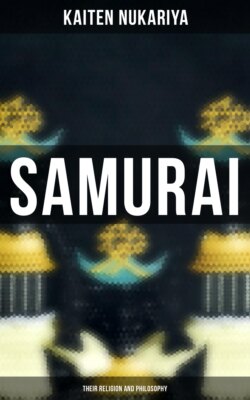Читать книгу Samurai: Their Religion and Philosophy - Kaiten Nukariya - Страница 26
На сайте Литреса книга снята с продажи.
6. The Honest Poverty of the Zen Monk and the Samurai.
ОглавлениеSecondly, the so-called honest poverty is a characteristic of both the Zen monk and the Samurai. To get rich by an ignoble means is against the rules of Japanese chivalry or Bushido. The Samurai would rather starve than to live by some expedient unworthy of his dignity. There are many instances, in the Japanese history, of Samurais who were really starved to death in spite of their having a hundred pieces of gold carefully preserved to meet the expenses at the time of an emergency; hence the proverb: "The falcon would not feed on the ear of corn, even if he should starve." Similarly, we know of no case of Zen monks, ancient and modern, who got rich by any ignoble means. They would rather face poverty with gladness of heart. Fu-gai, one of the most distinguished Zen masters just before the Restoration, supported many student monks in his monastery. They were often too numerous to be supported by his scant means. This troubled his disciple much whose duty it was to look after the food-supply, as there was no other means to meet the increased demand than to supply with worse stuff. Accordingly, one day the disciple advised Fu-gai not to admit new students any more into the monastery. Then the master, making no reply, lolled out his tongue and said: "Now look into my mouth, and tell if there be any tongue in it." The perplexed disciple answered affirmatively. "Then don't bother yourself about it. If there be any tongue, I can taste any sort of food." Honest poverty may, without exaggeration, be called one of the characteristics of the Samurais and of the Zen monks; hence a proverb: "The Zen monk has no money, moneyed Monto82 knows nothing."
